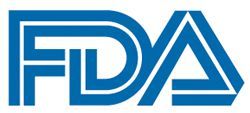Article
FDA Approves Sacituzumab Govitecan for Pretreated HR+/HER2– Metastatic Breast Cancer
Author(s):
The FDA has approved sacituzumab govitecan-hziy (Trodelvy) for the treatment of adult patients with unresectable locally advanced or metastatic hormone receptor–positive, HER2-negative breast cancer who have received endocrine-based therapy and at least 2 additional systemic therapies in the metastatic setting.
FDA

The FDA has approved sacituzumab govitecan-hziy (Trodelvy) for the treatment of adult patients with unresectable locally advanced or metastatic hormone receptor–positive, HER2-negative breast cancer who have received endocrine-based therapy and at least 2 additional systemic therapies in the metastatic setting.1
The regulatory decision is based on data from the phase 3 TROPiCS-02 trial (NCT03901339), which showed that sacituzumab govitecan elicited a statistically significant and clinically meaningful improvement in overall survival (OS) compared with physician's choice of single-agent chemotherapy. In the sacituzumab govitecan arm (n = 272), patients achieved a median OS of 14.4 months (95% CI, 13.0-15.7) vs 11.2 months (95% CI, 10.1-12.7) in the chemotherapy arm (n = 271), translating to a 21% reduction in the risk of death (HR, 0.789; 95% CI, 0.646-0.964; P = .02).2
Additionally, sacituzumab govitecan resulted in a median progression-free survival (PFS) of 5.5 months (95% CI, 4.2-7.0) compared with 4.0 months (95% CI, 3.1-4.4) with chemotherapy, translating to a 34% reduction in the risk of disease progression or death (HR, 0.661; 95% CI, 0.529-0.826; P = .0003). The 1-year PFS rate was 21% in the sacituzumab govitecan arm vs 7% in the chemotherapy arm.
“Despite decades of advances, people living with pretreated hormone receptor–positive/HER2-negative metastatic breast cancer need new treatment options. Nearly all people with this type of breast cancer will eventually develop resistance to endocrine-based therapies and progress on available chemotherapies,” Hope S. Rugo, MD, professor of Medicine and Director, Breast Oncology and Clinical Trials Education at the UCSF Helen Diller Family Comprehensive Cancer Center and principal investigator of the TROPiCS-02 study, stated in a news release. “This approval is significant for the breast cancer community. We have had limited options to offer patients after endocrine-based therapy and chemotherapy, and to see a clinically meaningful survival benefit of more than three months with a quality of life [QOL] benefit for these women is exceptional.”
The global, multicenter, open-label TROPiCS-02 trial enrolled patients with hormone receptor–positive, HER2-negative metastatic breast cancer who were previously treated with endocrine therapy, a CDK4/6 inhibitor, and 2 to 4 lines of chemotherapy for metastatic disease.
Investigators enrolled 543 patients who were randomly assigned to receive intravenous sacituzumab govitecan at 10 mg/kg on days 1 and 8 of each 21-day cycle, or physician's choice of single-agent chemotherapy with eribulin, capecitabine, gemcitabine, or vinorelbine.
PFS assessed by blinded independent central review per RECIST v1.1 criteria served as the trial's primary end point. Secondary end points consisted of OS, overall response rate (ORR), clinical benefit rate (CBR), duration of response (DOR), QOL, safety, and tolerability.
Additional data presented at the 2022 ESMO Congress showed that patients treated with sacituzumab govitecan achieved an ORR of 21%, compared with 14% for those given chemotherapy (odds ratio [OR], 1.63; 95% CI, 1.03-2.56; P = .035).3 The CBR in the sacituzumab govitecan and chemotherapy arms was 34% and 22%, respectively (OR, 1.8; 95% CI, 1.23-2.63; P = .003).
Sacituzumab govitecan produced a median DOR of 8.1 months (95% CI, 6.7-9.1), compared with 5.6 months (95% CI, 3.8-7.9) for chemotherapy.
Regarding QOL, the median time to deterioration of global health status/QOL was 4.3 months for sacituzumab govitecan vs 3 months for chemotherapy, (HR, 0.75; 95% CI, 0.61-0.92; P = .006). The median time to deterioration for fatigue was 2.2 months for sacituzumab govitecan compared with 1.4 months for chemotherapy (HR, 0.73; 95% CI, 0.60-0.89; P = .002).
Regarding safety, findings from TROPiCS-02 were consistent with prior studies of sacituzumab govitecan, and no new safety signals were identified in this patient population. The most frequent serious adverse effects occuring in more than 1% of patients included diarrhea (5%), febrile neutropenia (4%), neutropenia (3%, abdominal pain (2%), colitis (2%), neutropenic colitis (2%), pneumonia (2%), and vomiting (2%).
The most common grade 3/4 lab abnormalities that were reported in at least 25% of patients were reduced neutrophils and leukocytes. No patients in the sacituzumab govitecan arm experienced interstitiial lung disease.
“We are pleased that [sacituzumab govitecan] could now provide new hope for people living with pre-treated hormone receptor–positive/HER2-negative metastatic breast cancer, building on the transformative role that [sacituzumab govitecan] is already playing for people with metastatic triple-negative breast cancer [TNBC],” Daniel O'Day, chairman and chief executive officer, Gilead Sciences, stated in a news release. “We thank the physicians, patients and their families who put their trust in the TROPiCS-02 study and helped make this milestone possible.”
The approval marks the second United States indication for sacituzumab govitecan in the treatment of breast cancer. In April 2021, the FDA granted regular approval to sacituzumab govitecan for the treatment of patients with unresectable locally advanced or metastatic triple-negative breast cancer who have previously received 2 or more systemic therapies, at least 1 of them for metastatic disease.4
References
- US FDA approves Trodelvy in pre-treated HR+/HER2- metastatic breast cancer. News release. Gilead Sciences. February 3, 2023. Accessed February 3, 2023. https://www.gilead.com/news-and-press/press-room
- Trodelvy. Prescribing Information. 2023. Accessed February 3, 2023. fda.gov/drugs
- Rugo HS, Bardia A, Marme F, et al. Overall survival (OS) results from the phase III TROPiCS-02 study of sacituzumab govitecan (SG) vs treatment of physician's choice (TPC) in patients (pts) with HR+/HER2- metastatic breast cancer (mBC). Ann Oncol. 2022;33(suppl 7):S1386. doi:10.1016/j.annonc.2022.08.012
- FDA grants regular approval to sacituzumab govitecan for triple-negative breast cancer. News release. FDA. April 7, 2021. Accessed February 3, 2023. https://www.fda.gov/drugs/resources-information-approved-drugs









